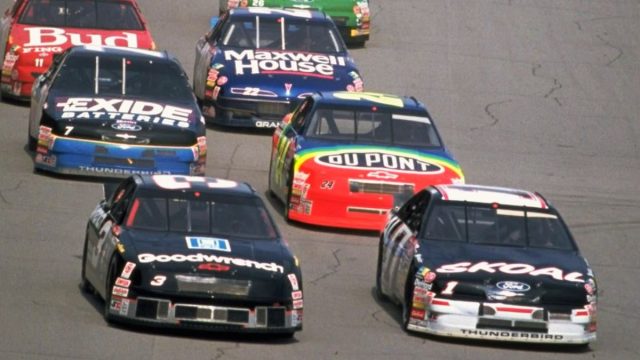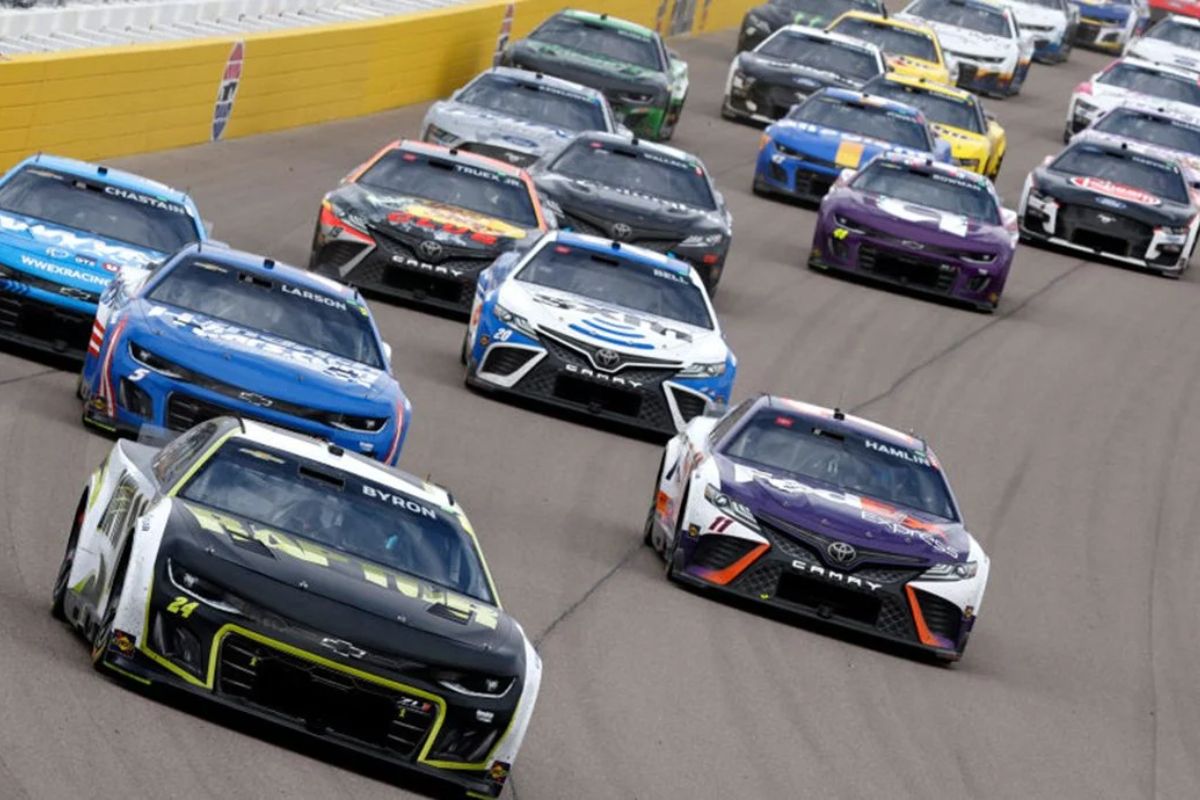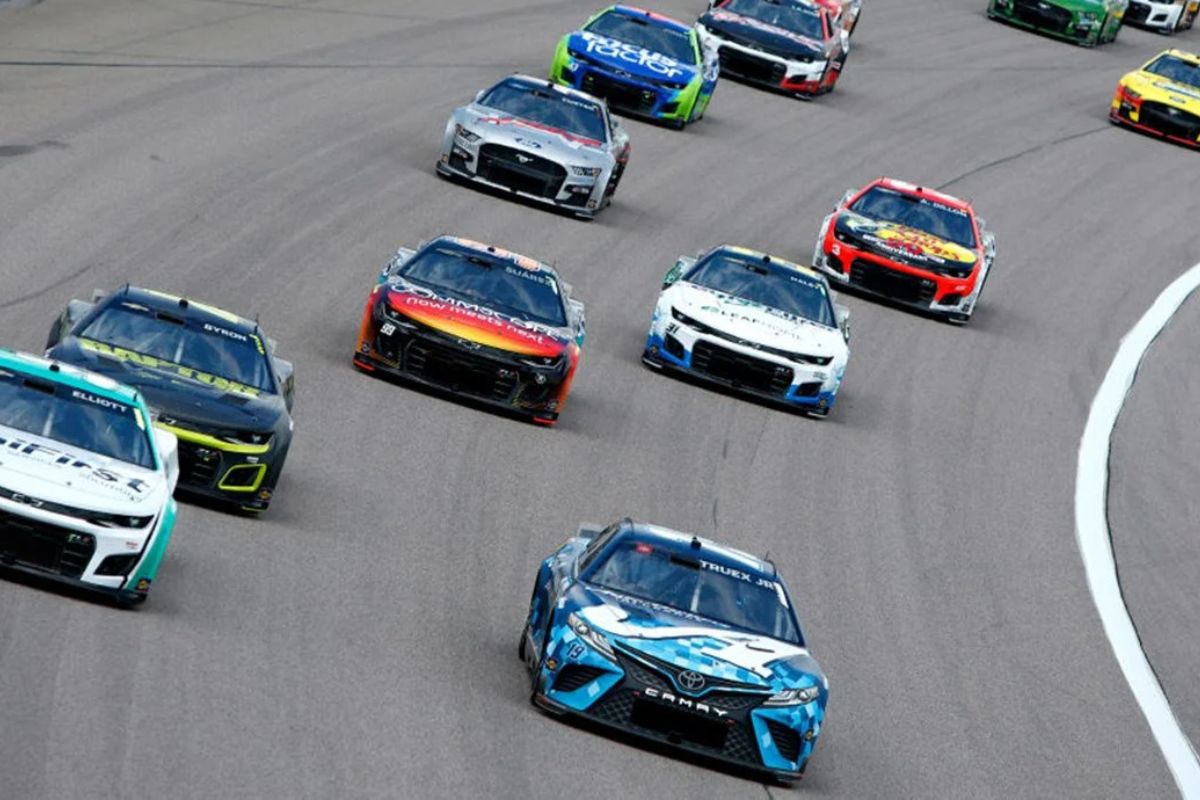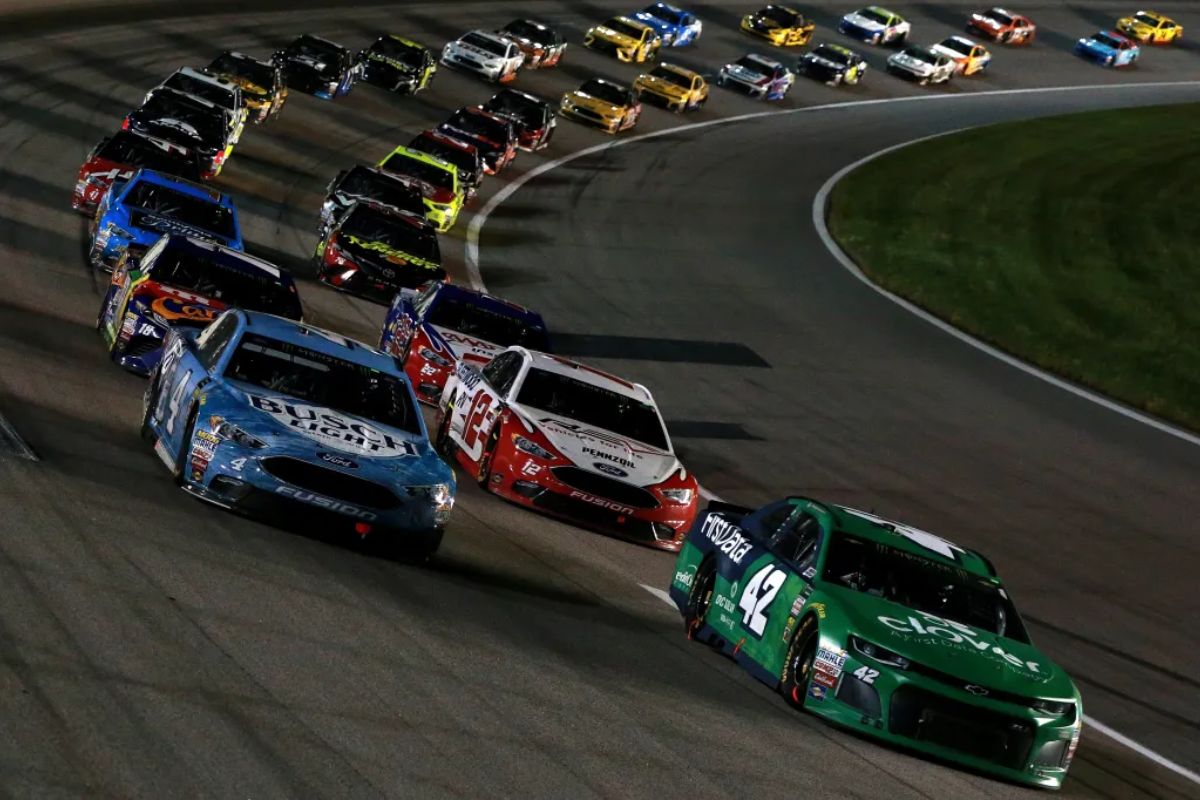NASCAR Fans Agree with Rick Mast: In motorsports, NASCAR has often grappled with perceptions that label it as less inclusive, particularly when it comes to race. However, echoing former racer Rick Mast’s sentiments, a significant number of fans are now vocally rejecting the notion of NASCAR as a ‘racist sport.’ They point to the organization’s proactive measures in fostering diversity and inclusivity, both on and off the track, as crucial in reshaping its public image. These initiatives range from recruitment policies aimed at diversifying talent to community outreach programs designed to engage a broader audience.
Key Takeaways
- NASCAR fans align with Rick Mast’s view of the sport’s progressive inclusivity and diversity efforts.
- Many fans cite NASCAR’s community engagement and outreach programs as evidence against the racist label.
- Rick Mast’s testimonies about the 1990s diversity initiatives resonate with fans who see a historical pivot toward inclusivity.
- Supporters highlight the change from Wendell Scott’s era of prejudice to today’s more welcoming environment in NASCAR.
- NASCAR’s active promotion of diversity in driver representation and team staffing is acknowledged and appreciated by its fanbase.
NASCAR’s Racial History
NASCAR’s racial history, marked mainly by its Southern white roots, has been a complex narrative of gradual integration and ongoing challenges. Originating in 1949, NASCAR quickly became representative of a certain regional and racial identity, mainly attracting and reflecting the white Southern communities from which it sprang. This homogeneous beginning set a precedent that would shape the sport’s cultural landscape and perceptions for decades.
The slow pivot toward racial integration in NASCAR began significantly with Wendell Scott, the initial Black driver to compete at NASCAR’s highest level during the 1950s and 1960s. Scott’s entry into the predominantly white sport was a landmark moment, yet his career was filled with the racial prejudices of the era. Despite facing numerous obstacles, Scott’s resilience and presence on the track began to challenge the entrenched racial norms within NASCAR.
Scott’s career, while pioneering, highlighted the persistent barriers to full integration and acceptance within the sport. His struggles and achievements highlighted the broader social tensions in America regarding race and inclusion during the mid-20th century. The fact that it took decades for another Black driver to emerge at the top levels after Scott speaks volumes about the slow pace of change within NASCAR.
Rick Mast’s Perspective on NASCAR’s Diversity
Reflecting on the diversity of NASCAR during the 1990s, former driver Rick Mast vehemently disagreed with the sport being labeled as inherently racist, a sentiment echoed by many fans of the era. Mast’s perspective was rooted in his personal experiences and observations while actively participating in the racing circuits. He witnessed firsthand the sport’s efforts to adapt and evolve in response to broader societal changes, particularly regarding diversity.
“The media does it more than anything, and then once that switch was flipped fans all had a side to pick… the stupid part is both sides want the same thing in different ways.”
“People see what they want to see.”- fans comment
Mast pointed to initiatives that aimed to make NASCAR more inclusive. These efforts, he argued, demonstrated a commitment to change that was often overlooked by critics who focused solely on the sport’s past. Mast asserted that these endeavors to increase diversity were genuine and impactful, helping to slowly transform the landscape of NASCAR.
Rick Mast’s Interview and Perspective
In an interview, Rick Mast shared his perspective on NASCAR’s inclusivity during his career, contrasting the challenges faced by early minority drivers like Wendell Scott with the evolving diversity initiatives of the 1990s. Mast acknowledged the stark adversities Scott endured, noting that his progression into NASCAR’s highest levels was tainted by over racism and sabotage, which were symptomatic of broader societal prejudices of the time. Despite these hurdles, Scott’s perseverance paved the way for gradual changes within the sport.
“I had in the ’80s…two black guys on my crew: Paul and Peeway. And it was never a thought with me that I got two black guys. It was never a thought with anybody within my team…I’m sure with them, maybe they felt it. But they were welcome in our garage from our fellow competitors no differently than anybody in there.”-Mast
Mast emphasized that by the time he was racing, NASCAR had begun to implement diversity initiatives aimed at fostering a more inclusive environment. These efforts marked a significant departure from the sport’s earlier days. According to Mast, the 1990s saw NASCAR taking active steps to shed its exclusionary image and broaden its appeal beyond its traditional fanbase.
Mast’s Personal Experience and Team Dynamics
Building on the broader context of inclusivity initiatives, Rick Mast’s personal experiences and interactions within his team further shows the evolving dynamics of NASCAR during his career. Mast, having raced in an era somewhat removed from the current high-profile diversity thrusts like those represented by Bubba Wallace, provides a unique insider perspective on the atmosphere within NASCAR’s garages and teams during his tenure.
“We’re all trying to take a bucket of boats and win a Busch Grand National race…We would help other teams, other teams would help us, that’s the way it worked those days.”
“What always p*ssed me off is us being categorized as a racist sport. Again, I cannot speak for the fans, I’m not out there every week…That garage area encompasses everybody in our sport…It’s not there, it just isn’t“.- mast
According to Mast, the notion of NASCAR as a non-progressive sport is a mischaracterization. He articulates that, during his career, there was a conscious effort among teams and drivers to foster a sense of unity and respect, irrespective of background. This is critical, considering the often singular focus on drivers, neglecting the multifaceted team dynamics that play a significant role in the sport. His recounting suggests that NASCAR teams were not insulated from societal shifts towards greater inclusivity and were, in fact, participants in this evolution.
Mast’s Legacy and Team Support
How important was Mast’s team in shaping his enduring legacy and support throughout his NASCAR career? The answer is considerably. Rick Mast’s career, particularly marked by resilience and competitiveness, was underpinned by an exceptional team. This team was not just a group of professionals; they were a central force that amplified Mast’s talents and strategies on the track. Throughout his 15-season career, which featured driving for different teams across 243 starts in NASCAR’s No. 2 Series, the Busch Grand Nationals, his team’s expertise and support system played a vital role.
“It was more than the drivers, it was the crew members and all the comradery you felt being a part of that group.”
“I had one chance to move to another team one time and I would have taken the sponsor with me, but I would have also put the guys in the shop out of a job at the team I was with at the time and I just couldn’t do that.”-mast
Rick Mast’s acknowledgment of his team’s contribution to his successes highlights the symbiotic relationship between a driver and his team. Their role was pivotal in managing the intricacies of race strategies, car adjustments, and adapting to different tracks, which collectively contributed to his impressive tally of nine wins and 39 top-fives.
| Aspect | Description | Impact on Mast’s Career |
|---|---|---|
| Technical Expertise | Mastery in vehicle dynamics and race adjustments | Improved performance on track |
| Strategic Planning | Insightful race strategies and pit stop management | Secured competitive advantages |
| Emotional Support | Constant encouragement and psychological backing | Maintained high morale and resilience |
News in Brief: NASCAR Fans Agree With Rick Mast
The alignment of NASCAR fans with Rick Mast’s views signifies a broader rejection of the label of racism historically associated with the sport. This perspective highlights the organization’s ongoing efforts toward fostering diversity and inclusivity.
Through such initiatives, NASCAR demonstrates a commitment to transforming its cultural landscape, thereby promoting a more welcoming environment. Mast’s experiences and demands play a pivotal role in reshaping public perceptions and contributing to NASCAR’s evolving legacy of unity.
Our Reader’s Queries
Q. How many races did Rick Mast win?
A. Mast found success in the series, tallying nine wins, 39 top-five, and 95 top-10 finishes across 243 starts in NASCAR’s No. 2 series.
Q. Who are NASCAR fans?
A. NASCAR enthusiasts are renowned for their unwavering loyalty and commitment to their beloved drivers and teams. Frequently, they embark on extensive journeys to attend races, adorned in attire adorned with the colors and logos of their favorite drivers.
ALSO READ: NASCAR Fans Defend Tyler Reddick Amid Dover Drama



